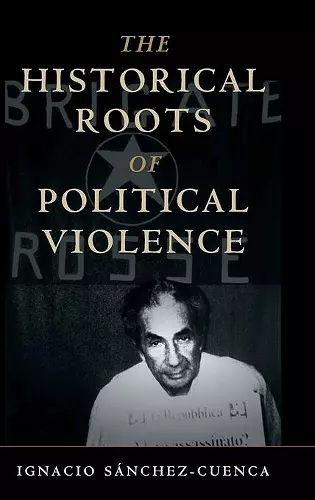The Historical Roots of Political Violence
Revolutionary Terrorism in Affluent Countries
Format:Hardback
Publisher:Cambridge University Press
Published:6th Jun '19
Currently unavailable, and unfortunately no date known when it will be back

Offers the first comprehensive analysis of the wave of revolutionary terrorism in affluent countries.
This book offers the first comprehensive analysis of the wave of revolutionary terrorism in affluent countries, focusing on the development paths followed by countries during the interwar period. It will appeal to researchers and students interested in studying political violence, conflict, and terrorism.Following the protest movements and radicalism of the late sixties, many affluent countries experienced lethal revolutionary terrorism. Groups like the Red Brigades in Italy and the Red Army Faction in Germany provoked political crises in their countries. Other affluent countries, however, did not experience this same kind of violence. This book offers a historical-comparative explanation of this cross-national variation, focusing on the development paths followed by countries during the interwar period. The countries that followed a non-liberal path (marked by anarchist terrorism, democratic breakdowns, civil wars, land inequality, non-liberal capitalism, and late industrialization) suffered lethal left-wing terrorism decades later. Terrorism is thus explained as a feature of the political and economic system. Drawing on several fields, including comparative politics, political economy, international relations, and historical sociology, this book offers novel hypotheses about the determinants of violent conflict.
'Sánchez-Cuenca's truly path-breaking study of revolutionary terrorism in affluent countries is original, deep, broad-ranging, highly readable, and chock full of new and intriguing insights. An absolutely real gem.' Stathis Kalyvas, Gladstone Professor of Government, University of Oxford
'This is a fascinating explanation of what seems, in retrospect, to be a very hard-to-understand wave of transnational terrorism - the revolutionary terrorist groups that operated in multiple advanced industrial countries in the 1970s and 80s. Sánchez-Cuenca handles multiple methods with a rare combination of creativity and common sense, making notable progress on the difficult problem of how to understand the interactive effects of ideology, historical legacies, and transnational shocks on political violence.' James Fearon, Stanford University, California
'This book is about the causes of leftwing terrorism in the developed world, but this is not all. It goes beyond the conventional narratives focused on the radicalization processes sparked by May '68 by digging deep into history to carve out the different long-term development paths that broadly influenced political conflicts in the western world. Sánchez-Cuenca's book reads like a mystery, in which the shocking discovery of the culprit opens extraordinary new avenues for further research about the determinants of violence in our societies.' Luis De La Calle, Centro de Investigación y Docencia Económicas, Mexico
'In summary, this book is truly a tour de force, highly recommended for experts on the matter and for those who wonder about the crossover between the right methodology to analyse long term processes, ideas, culture, institutions and specific facts that give results where luck and the individual and collective actions are also involved.' Carmen Lopez Alonso, Revista Española de Investigaciones Sociológicas
ISBN: 9781108482769
Dimensions: 235mm x 159mm x 20mm
Weight: 560g
296 pages